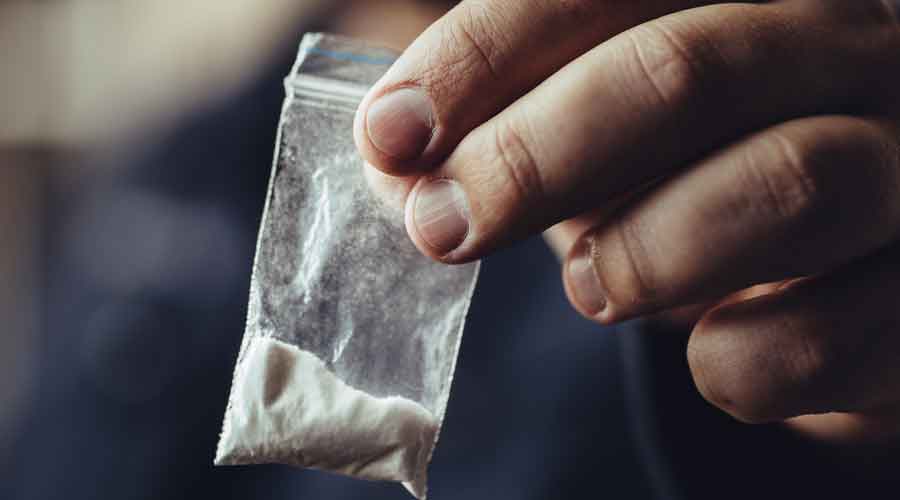A cache of medicines and medical gadgets valued at Rs 21.69 lakh was seized by Border Security Force (BSF) personnel early on Tuesday near the Bangladesh border.
The BSF had to open fire and lob stun grenades to disperse smugglers trying to push their illegal consignment to Bangladesh through a stretch of the Ichhamati river close to the Haridaspur border outpost in North 24-Parganas.
Under the thick cover of water hyacinths, the smugglers were trying to push 20 bags of medicines towards Bangladesh through the river when BSF personnel of the 158 battalion spotted them.
A source said that during the past two months the BSF seized medicines, mostly life-saving drugs, that were being smuggled to Bangladesh.
The source added that as formal export between India and Bangladesh had come to a crawl because of Covid curbs since March, smuggling gangs were active.
Most gangs use out-of-work migrant workers as handlers, the source said.
The BSF sources said the consignments seized on Tuesday included huge quantities of life-saving drugs of popular brands, which were handed over to customs at Petrapole.
The source said as people from Bangladesh come to Bengal and other centres in India for treatment, medicines popular in India have a huge demand in the neighbouring country. The formal supply line has been hit because of trade restrictions, while illegal trade of medicines is flourishing.
DIG (general) of BSF’s South Bengal Frontier S.S.Guleria said: “This is an unusual trend. We have never seen medicines smuggled in such huge quantities earlier.”
The BSF almost on a regular basis seizes Phensedyl, a codeine-based cough syrup that is abused as an intoxicant in Bangladesh. Seizure of Phensedyl by the BSF shot to an all-time high during the lockdown. But smuggling of life-savings drugs, including medicines required to treat cancer, kidney and cardiac problems, diabetes, and psychiatric disorders, is a new trend, said a BSF official.
“Smugglers are desperate, they tried to smuggle medicines to Bangladesh through a goods train carrying export items,” added a BSF official, referring to seizure of medicines from a Bangladesh-bound goods train last month at Gede and Petrapole.
“Many Bangladeshi people visit Calcutta for medical reasons and return the same day. Existing curbs on people’s movement between the two countries has created a crisis in the supply of medicines to Bangladesh,” said a BSF official in Petrapole.
An official of a private hospital on EM Bypass in Calcutta, patronised by many Bangladeshi patients, said they usually buy medicines for two months. “The lockdown has landed them in a big mess.”
“For any critical disease like cancer, kidney troubles a prescription issued by doctors remains valid for two months unless otherwise advised. So Bangladeshi patients who procured medicines before lockdown are not in a position to arrange medicines even from Bangladesh as the validity of their prescriptions has expired,” the hospital official added.










